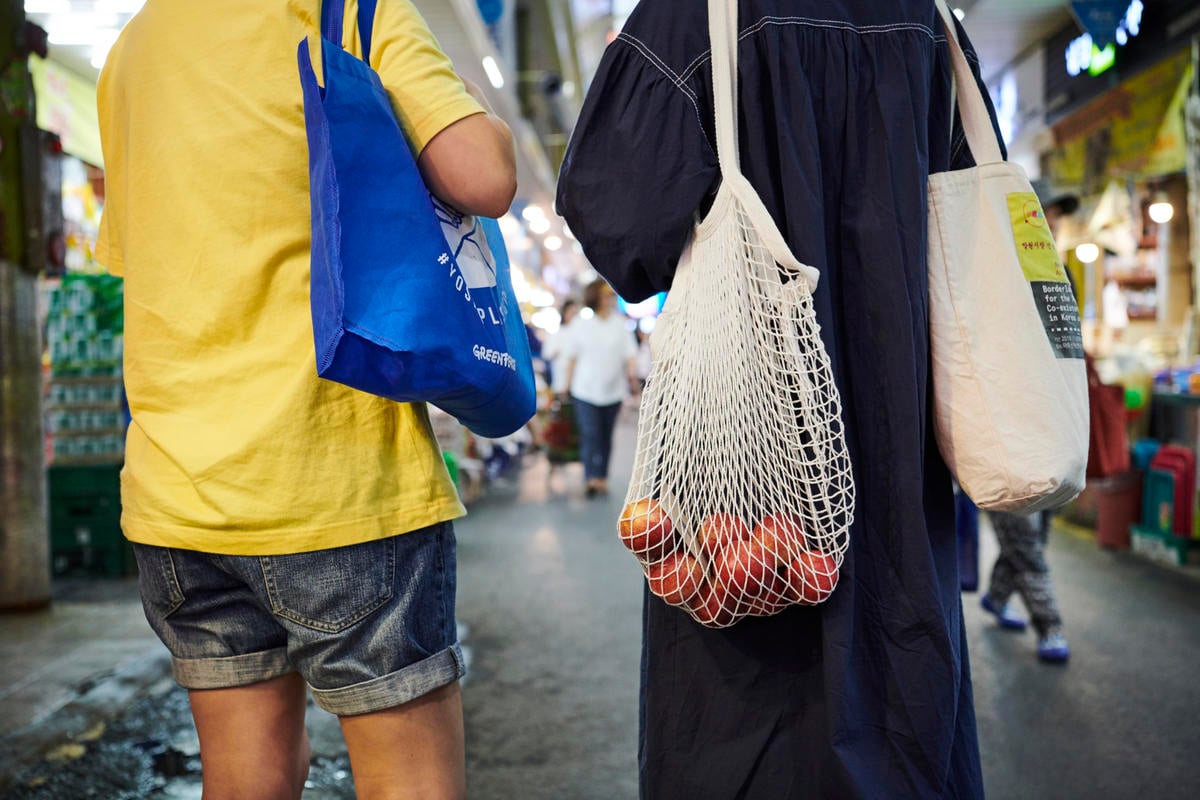The Dangers of Plastic
Plastic brings more inconveniences and even harm to life in general than it does convenience. Its effects on biodiversity are dire, polluting the land and oceans and even affecting our health. We must stop plastic’s chokehold on life before it is too late.
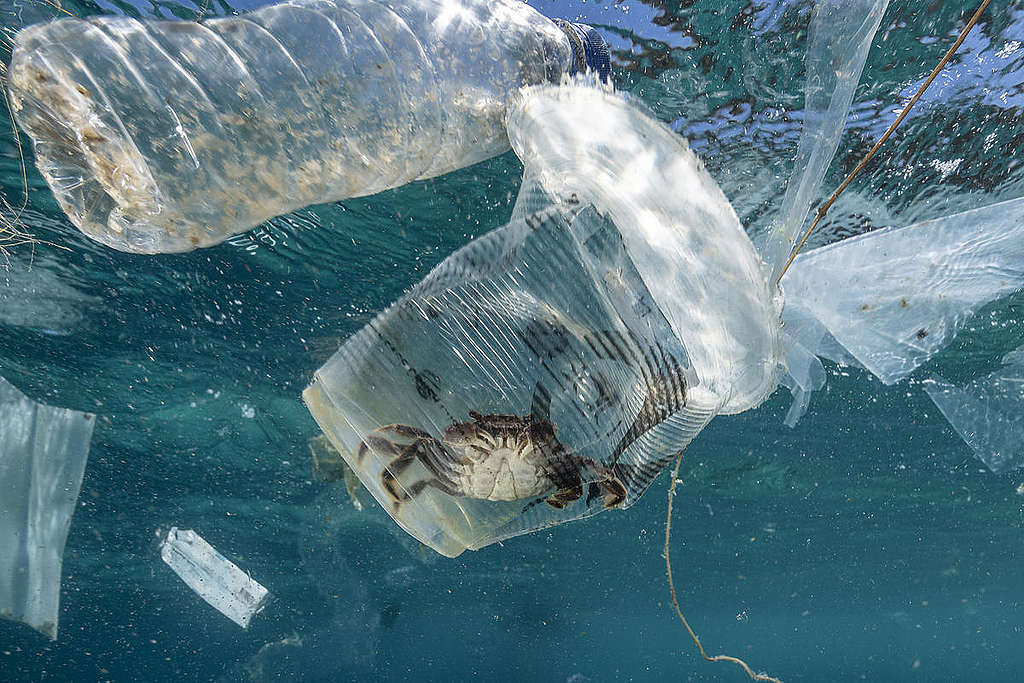
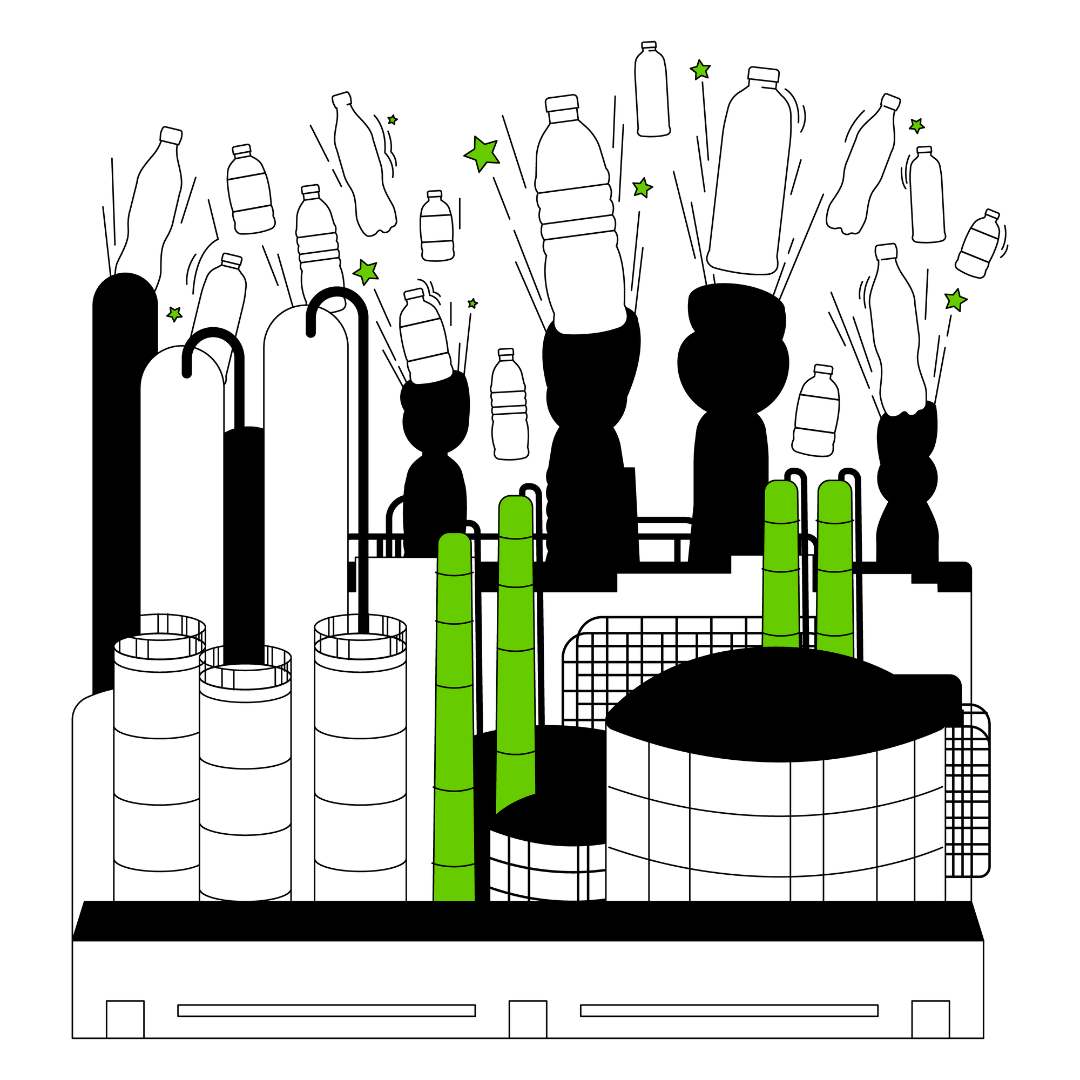
139 million
metric tons of single-use plastic waste were generated worldwide in 2021
Source: Minderoo Foundation

Only 9%
of all plastic ever produced globally has been recycled; the rest ends up in landfills or the ocean
Source: OECD
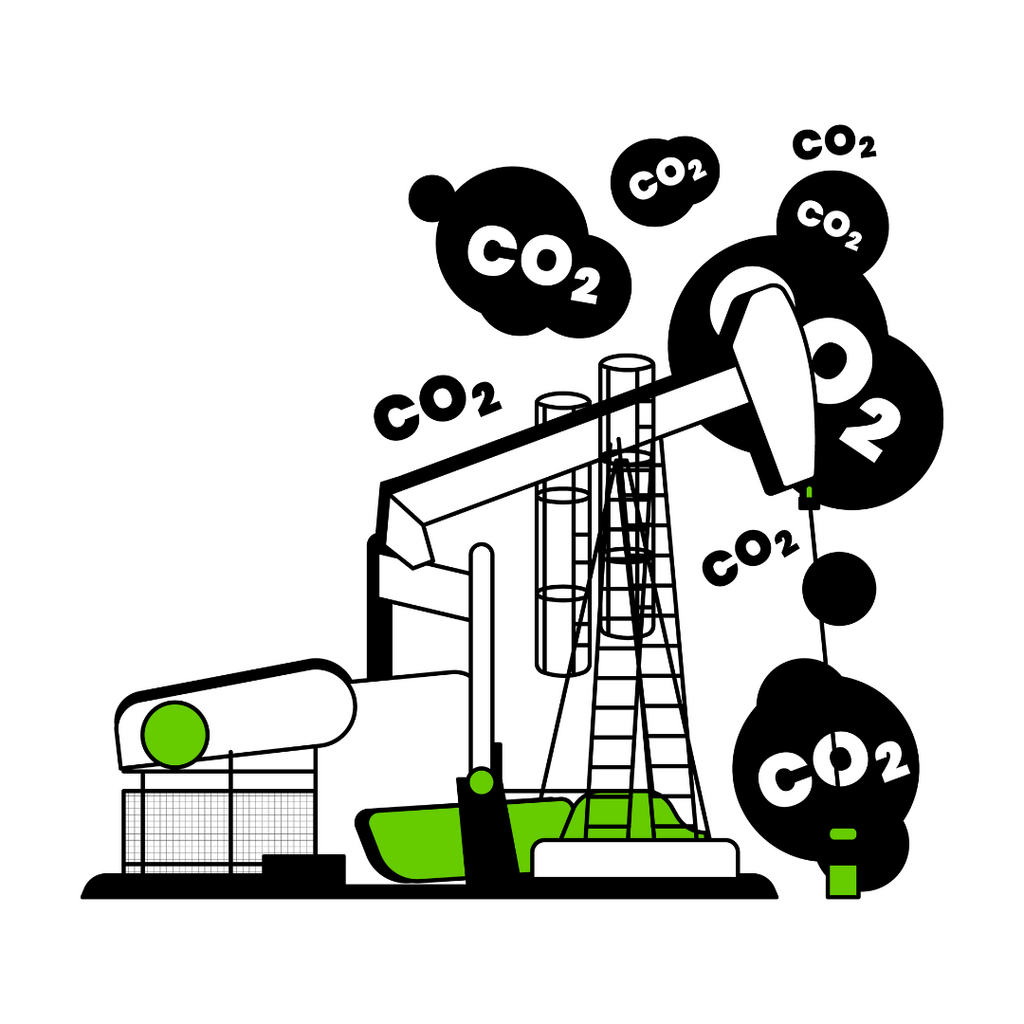
About 99%
of single-use plastic products are made from fossil fuels, which significantly contributes to climate change
Source: CIEL
The problem with plastic
From tingi packaging to furniture, take-out containers, grocery bags, and more, it’s almost impossible to go through your day without using or seeing something plastic, especially single-use plastic (SUPs). With how much we use it, it’s no wonder we also produce so much waste of it, leading to it polluting almost every corner of our planet. It’s piling up in our landfills, floating in our oceans and settling on ocean floors, and even being found in our bloodstreams as microplastics! Hence, it’s not a stretch to say that plastic is a danger to life and biodiversity.
With over 99% of plastic made from fossil fuels, the production of plastic in itself is a threat, fueling the ongoing climate crisis. The constant churn of goods by companies in order to drive profit is accelerating the problem, with greenhouse gas emissions being a byproduct of their production and life cycle. Add to that the fact that it takes centuries for them to completely disintegrate, which is why they are the top source of pollution in the environment, endangering marine life and disrupting the delicate balance in multiple ecosystems.
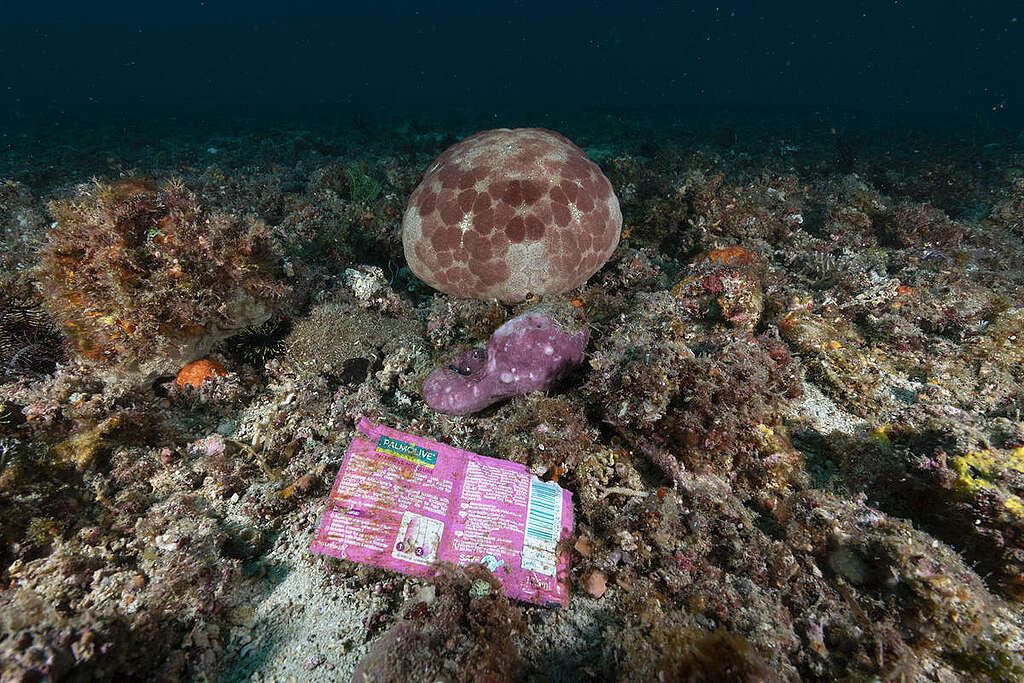
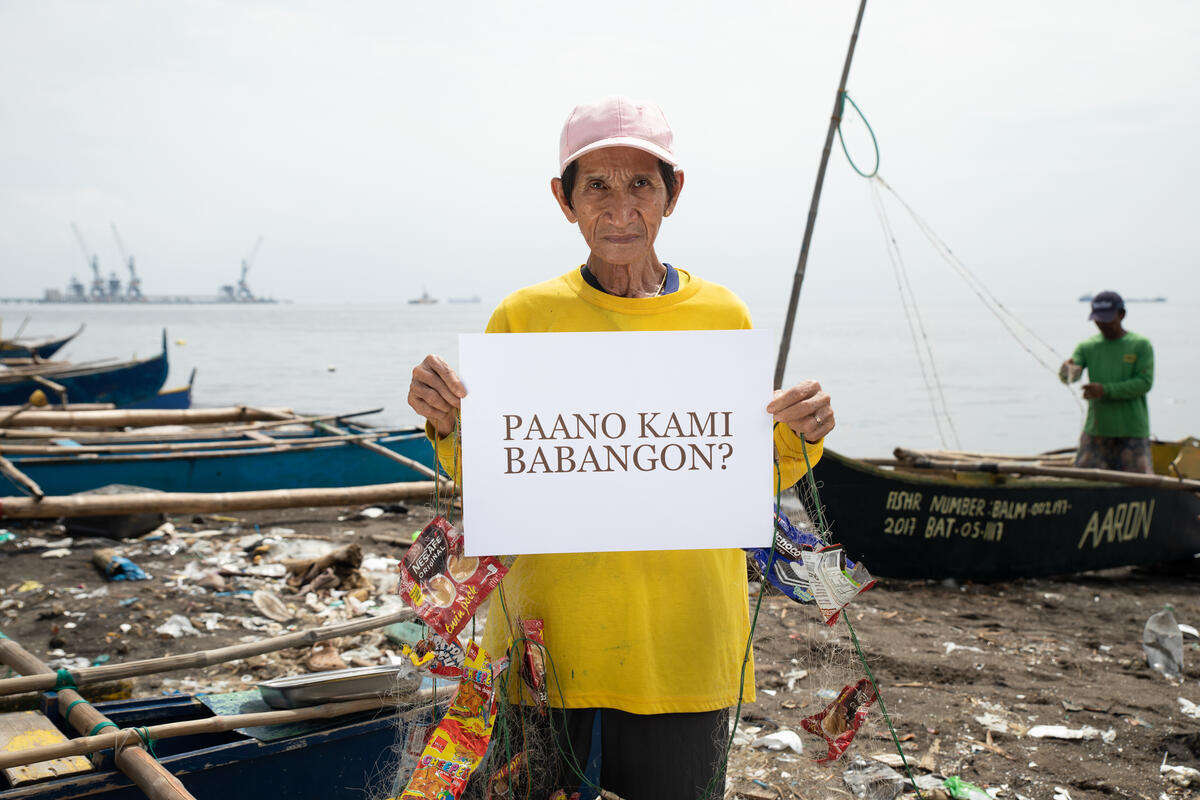
Not to mention how the plastic crisis worsens social injustice, impacting the marginalized sector disproportionally by disrupting the livelihood of fisherfolk, endangering communities near waterways due to plastic-related flooding, and putting those living near plastic waste disposals at constant health risk. The health hazards that come with plastic production and waste incineration include respiratory diseases and poisoning from toxic chemicals leaching into food and water sources.
All these reasons compound the danger that plastic poses and only add to the mounting need to put a stop to the plastic crisis today.
Solutions for a Plastic-Free Future
At Greenpeace, we work tirelessly alongside our supporters and partner communities to not only halt the growing dangers of plastic pollution but also to reduce or eliminate reliance on single-use plastics.
The three main pillars to achieving these goals are:
· Plastic Reduction – Corporations are the main culprits when it comes to producing plastic waste. We call on them to drastically reduce their plastic production and usage, particularly of SUPs, which they use primarily for packaging, and set concrete reduction targets that they must stick to. By breaking free from their reliance on plastic and making the transition to plastic-free alternatives, we hope to eliminate the need for SUPs once and for all.
· Reuse Revolution – Only around 9% of plastics produced are actually recycled. This staggering figure must be reduced through the implementation of reuse systems, which can cut plastic pollution by up to 30% by 2040, and advocating for a circular economy, which promotes a more sustainable model for production and consumption overall.
· Global Plastics Treaty – Finally, we call for a strong commitment to prioritizing sustainable practices, fighting climate change, and protecting biodiversity on a global scale with the goal of a just transition to a low-carbon, zero-waste, and reuse-based economy.
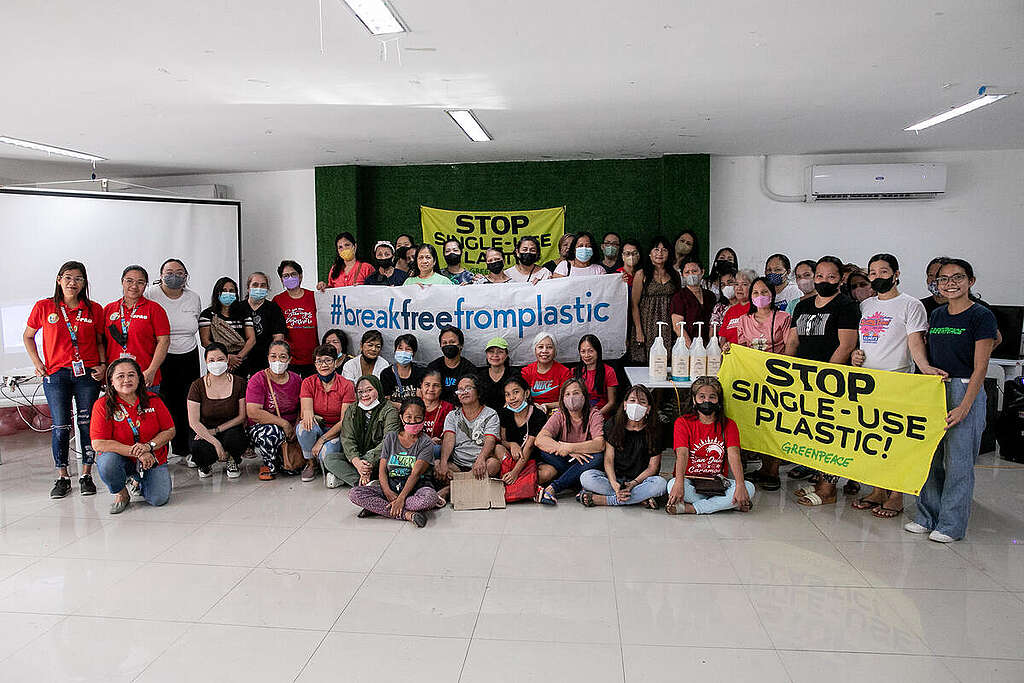
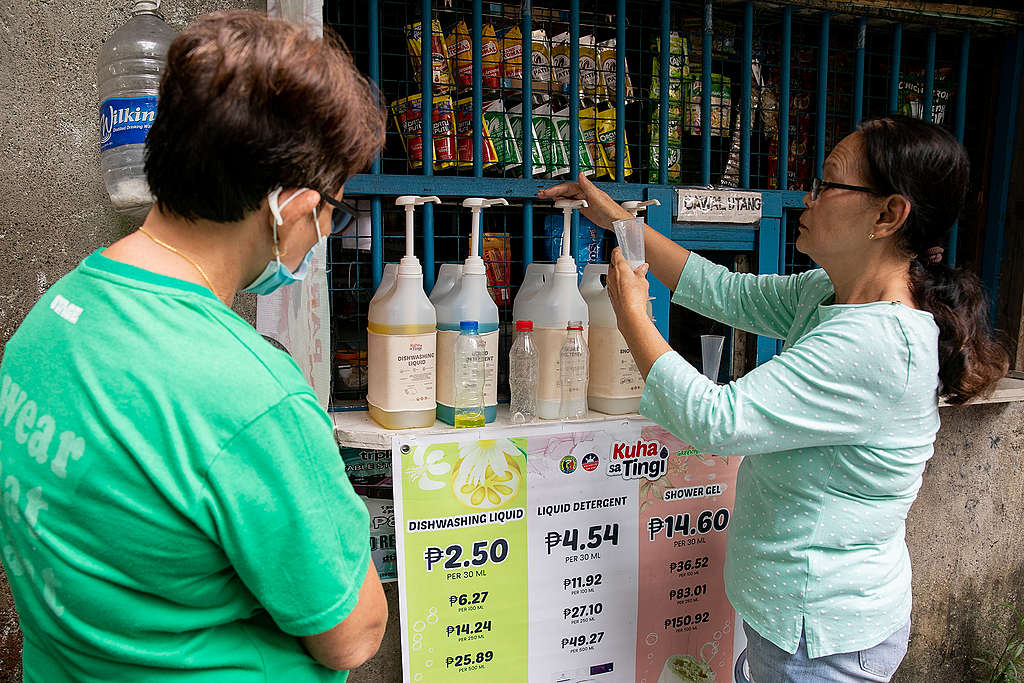
In the Philippines, our eco warriors are putting these into action through spearheading and collaborating with local communities and other NGOs in various projects such as Kuha sa Tingi, a project that introduces small-portion refill systems for everyday commodities at affordable prices in sari-sari stores to help mitigate sachet and single-use plastic pollution, and Break Free From Plastic’s 2022 Brand Audit Report, which calls out the worst plastic polluters in the country.
Through these efforts and with your help, we can help make a plastic-free future possible sooner rather than later.
How you can help
You can be part of the solution. Simple actions like reducing your plastic use, shifting to reuse and refill systems, advocating for strong policies, and signing petitions for change can make a big difference.
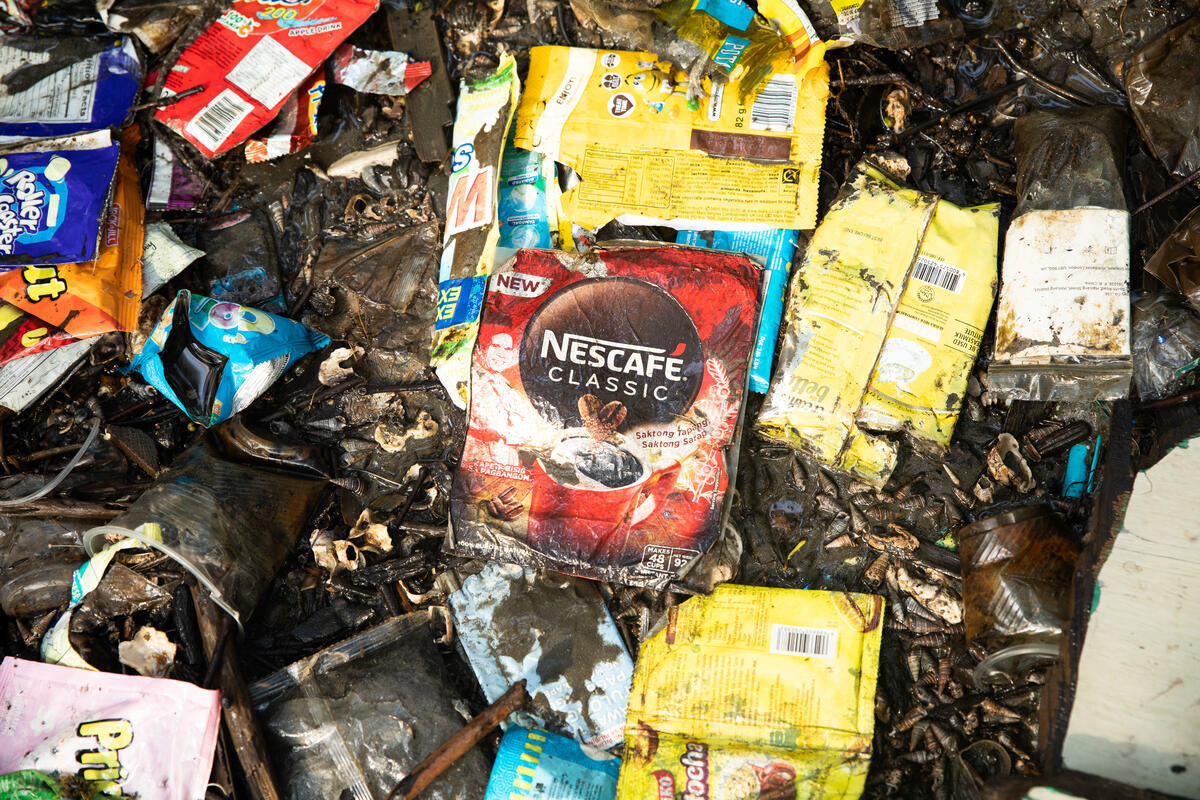
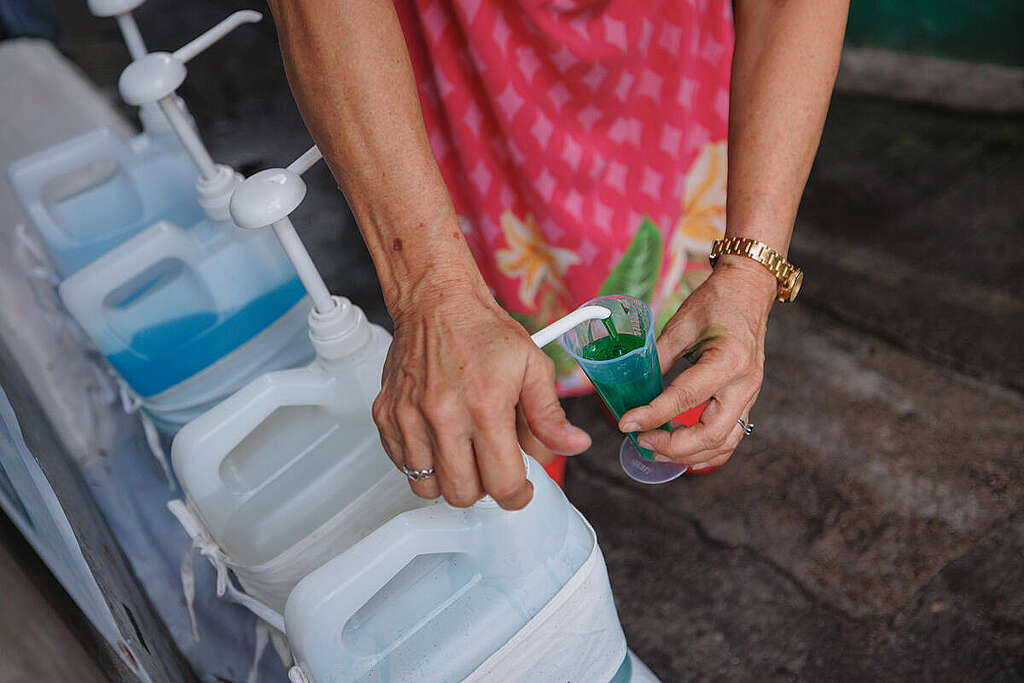
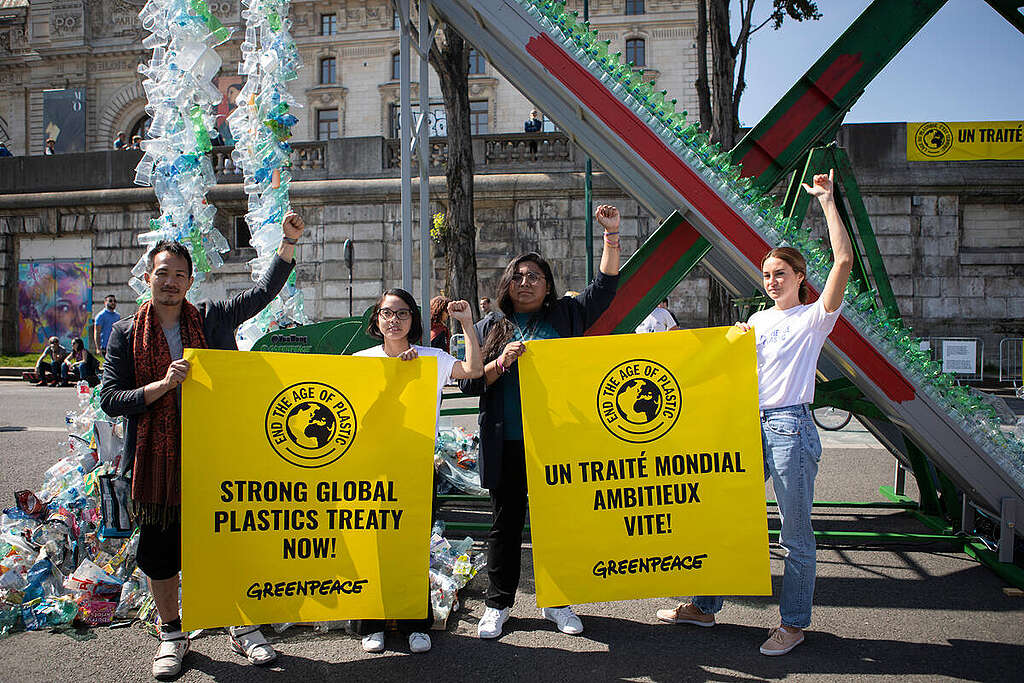
Stay informed with the latest updates on our work to combat plastic pollution. Explore stories from the frontlines of the fight for a plastic-free future.
-
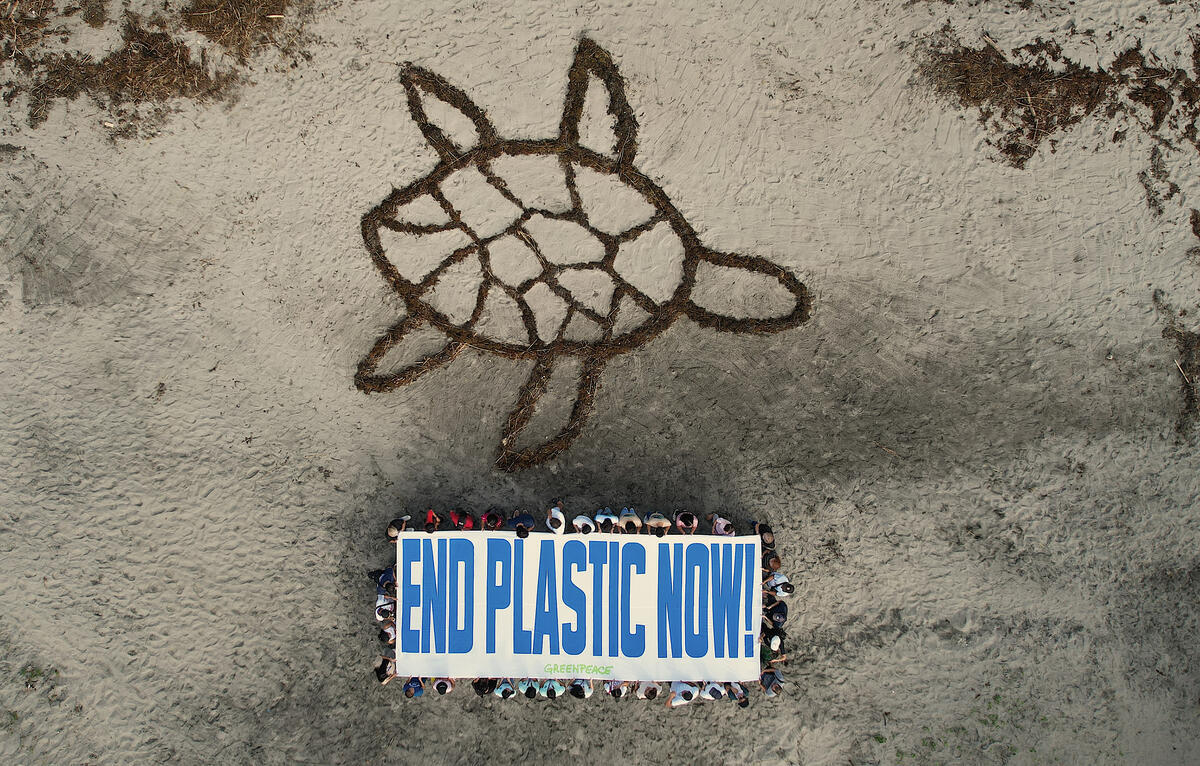
Greenpeace welcomes “Nice Declaration”
PH, 94 countries call for an ambitious Plastics Treaty
-
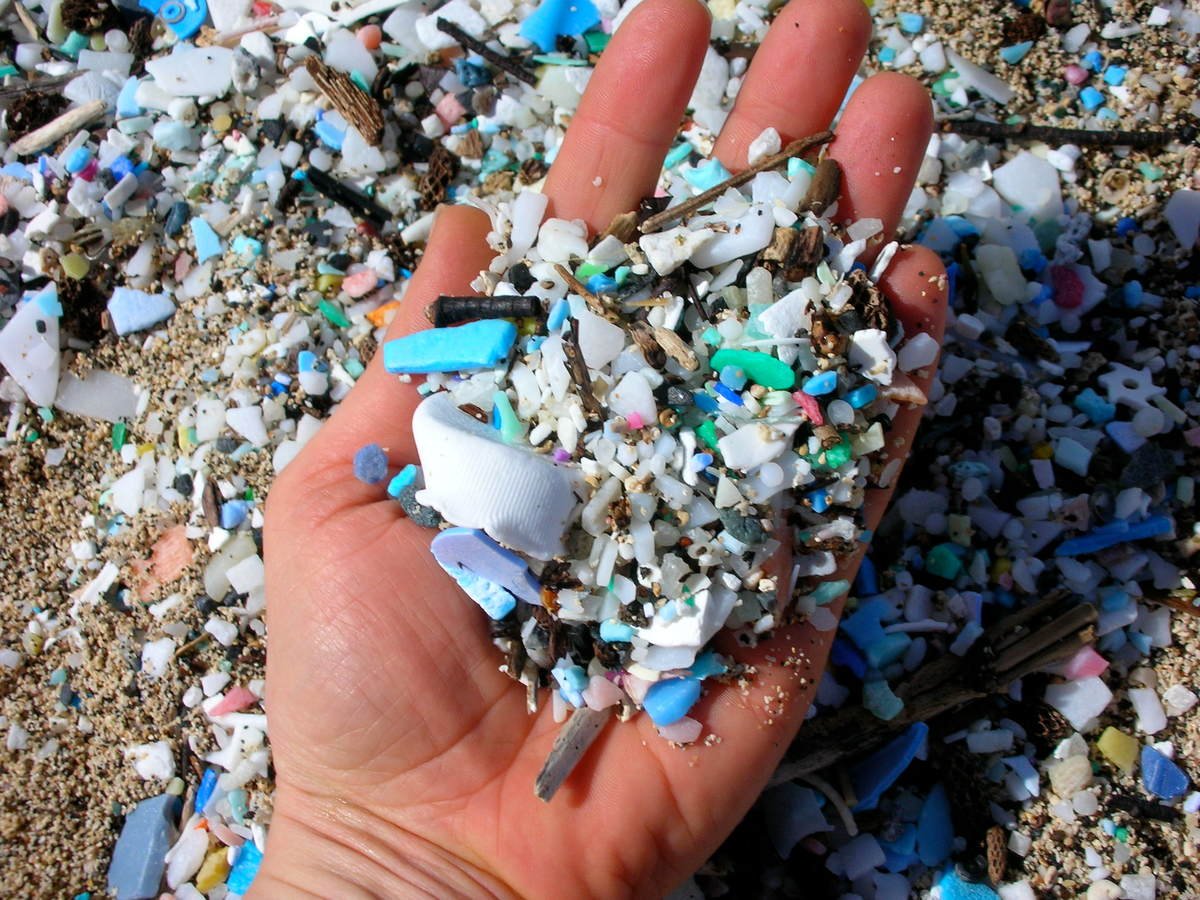
Envi, health groups raise alarm on plastic’s health risks ahead of World Envi Day
Leading up to the celebration of World Environment Day, Greenpeace Philippines, Health Care Without Harm Southeast Asia, and Planetary Health Philippines come together to organize an online multi-stakeholder forum, titled TOXIC TRUTHS: The Unfiltered Impacts of Plastic on Human Health, to discuss the health impacts of the plastic crisis and the systemic solutions to protect…
Dive deeper into the issues with our comprehensive reports and publications. These resources provide valuable insights into the plastic crisis and the solutions we are advocating for.
-
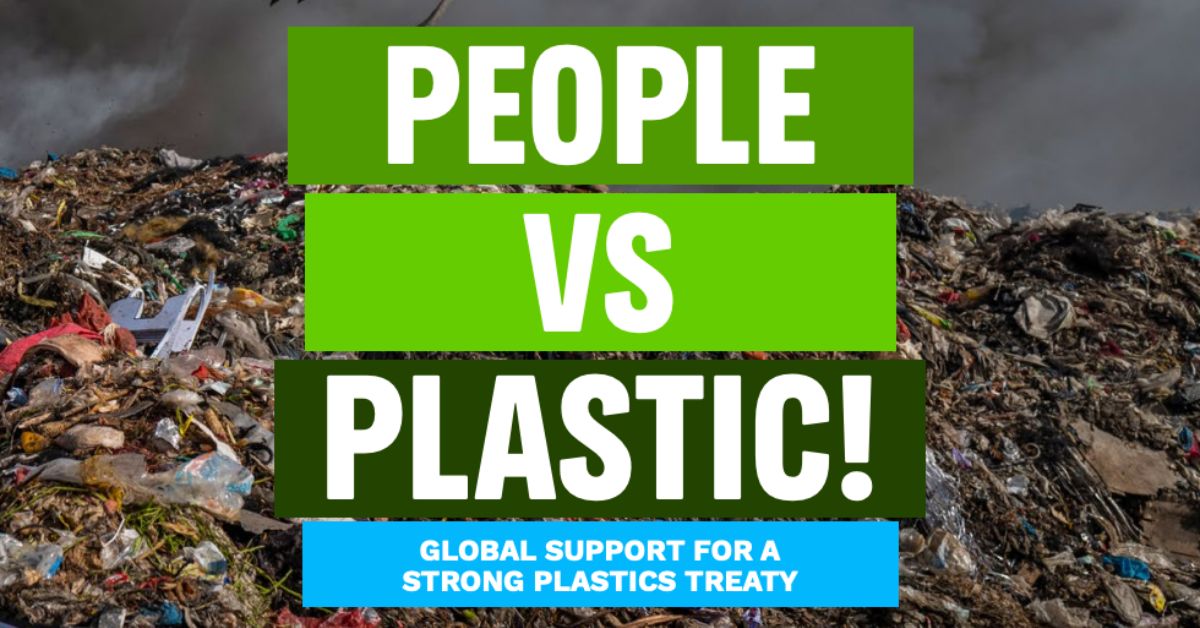
People vs Plastic
The results of this survey demonstrate that there is overwhelming public support for the Global Plastics Treaty to cut plastic production, end single-use plastics and advance reuse-based solutions.
-
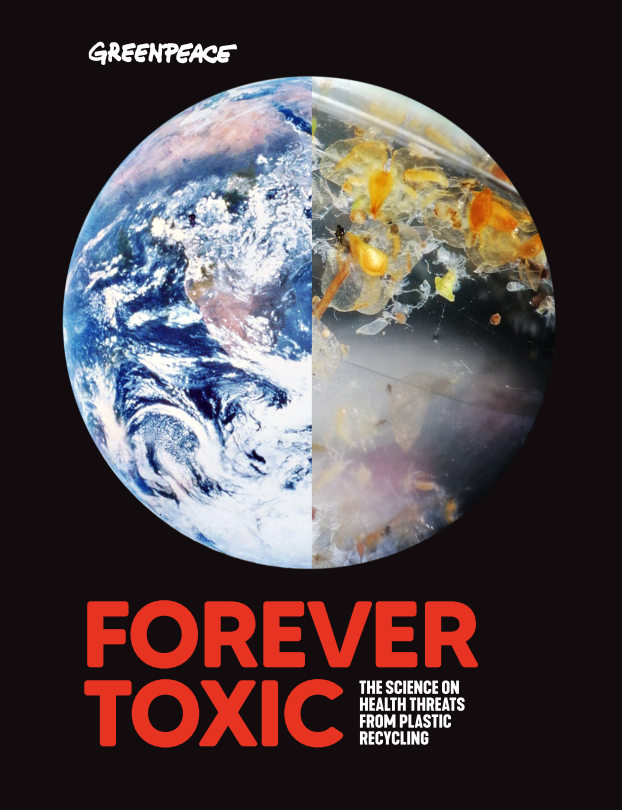
Forever Toxic: The science on health threats from plastic recycling
New Greenpeace report on health threats from plastic recycling
-
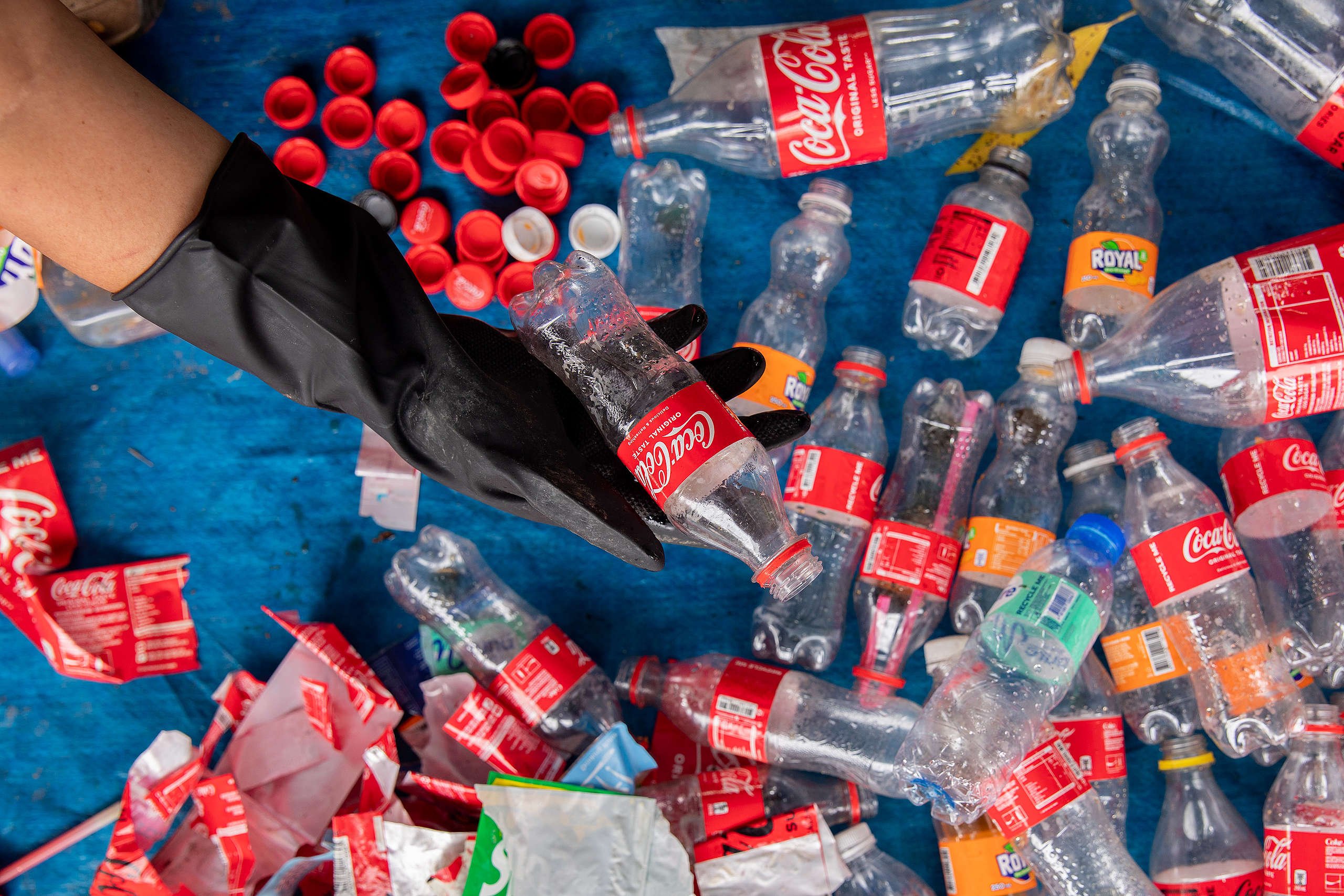
Brand Audit 2022: Greenpeace PH calls on world leaders to hold worst plastic polluters accountable
Break Free From Plastic’s 2022 Brand Audit Report revealed that the Coca-Cola Company, Philip Morris International, Universal Robina Corporation (URC), Philippine Spring Water Resources, Inc., and Japan Tobacco International are the worst plastic polluters in the country. Globally, Coca-Cola also leads the list for five years in a row, followed by PepsiCo, Nestle, Mondelez International,…
-
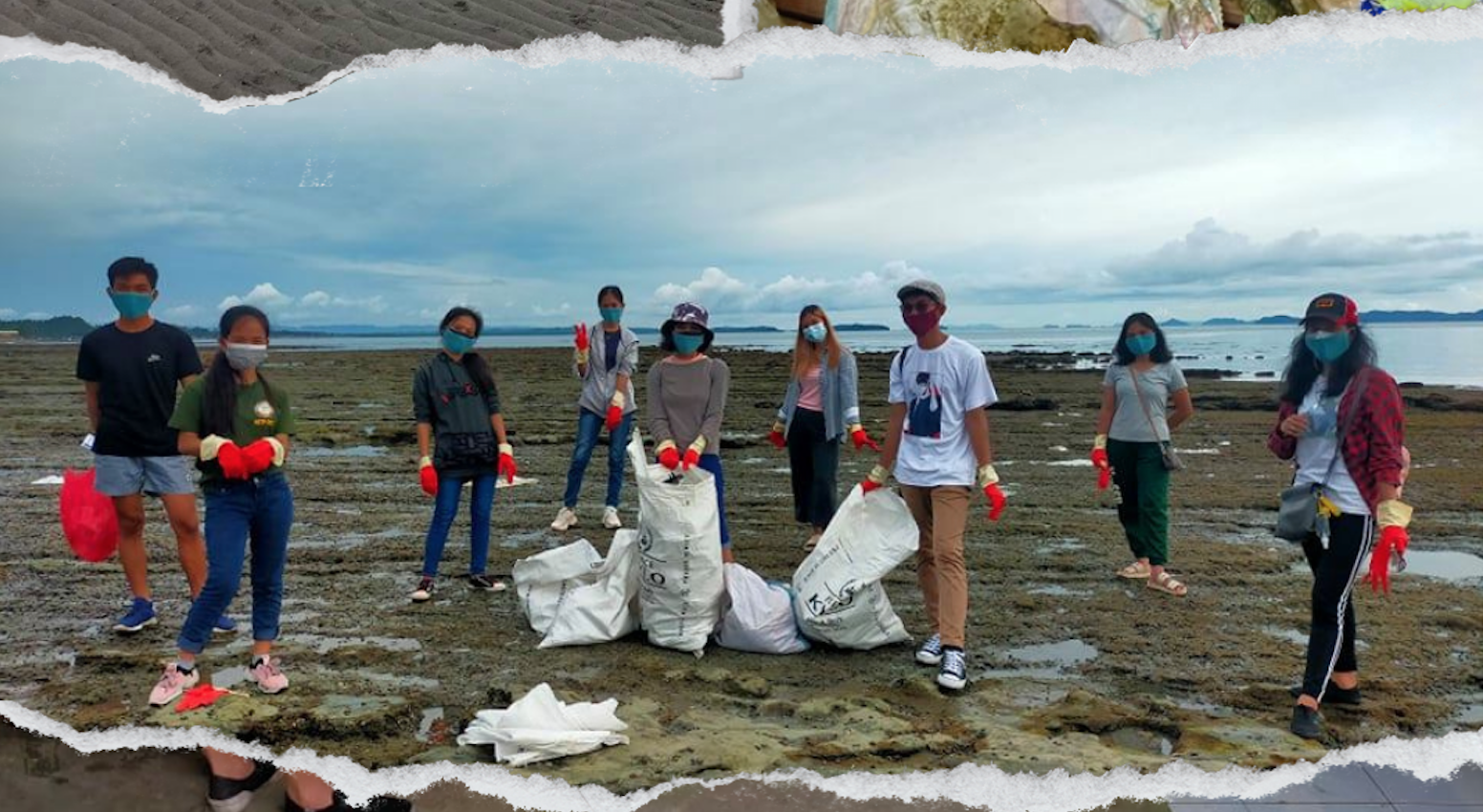
Brand Audit 2021: Greenpeace PH urges gov’t to scrutinize top plastic polluters’ false sustainability claims
Report revealed Coca-Cola, Universal Robina Corporation, Nestlé, Procter&Gamble and Mondelez are top polluters in PH
-
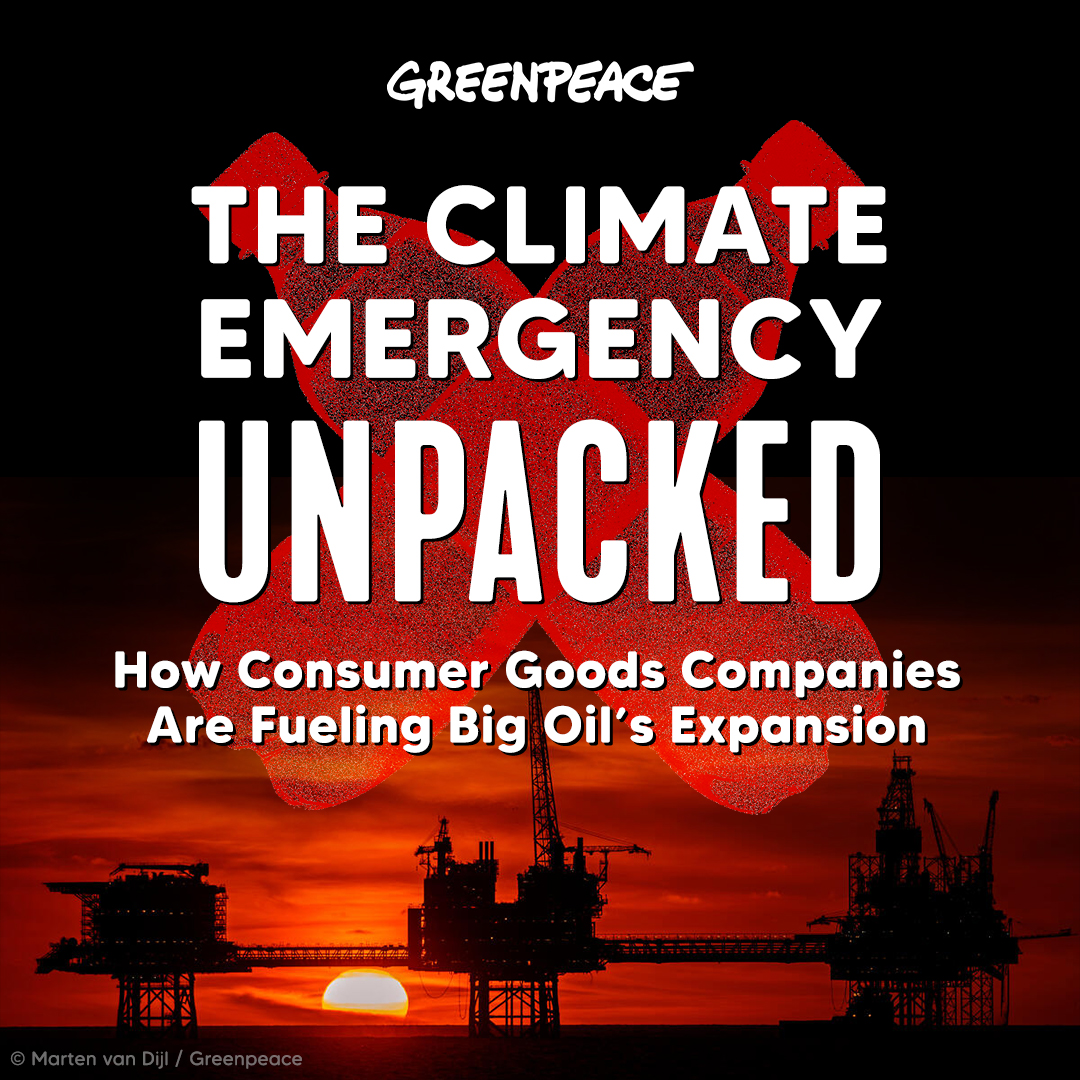
The Climate Emergency Unpacked
Greenpeace report on how consumer goods companies are fueling big oil’s plastic expansion
-
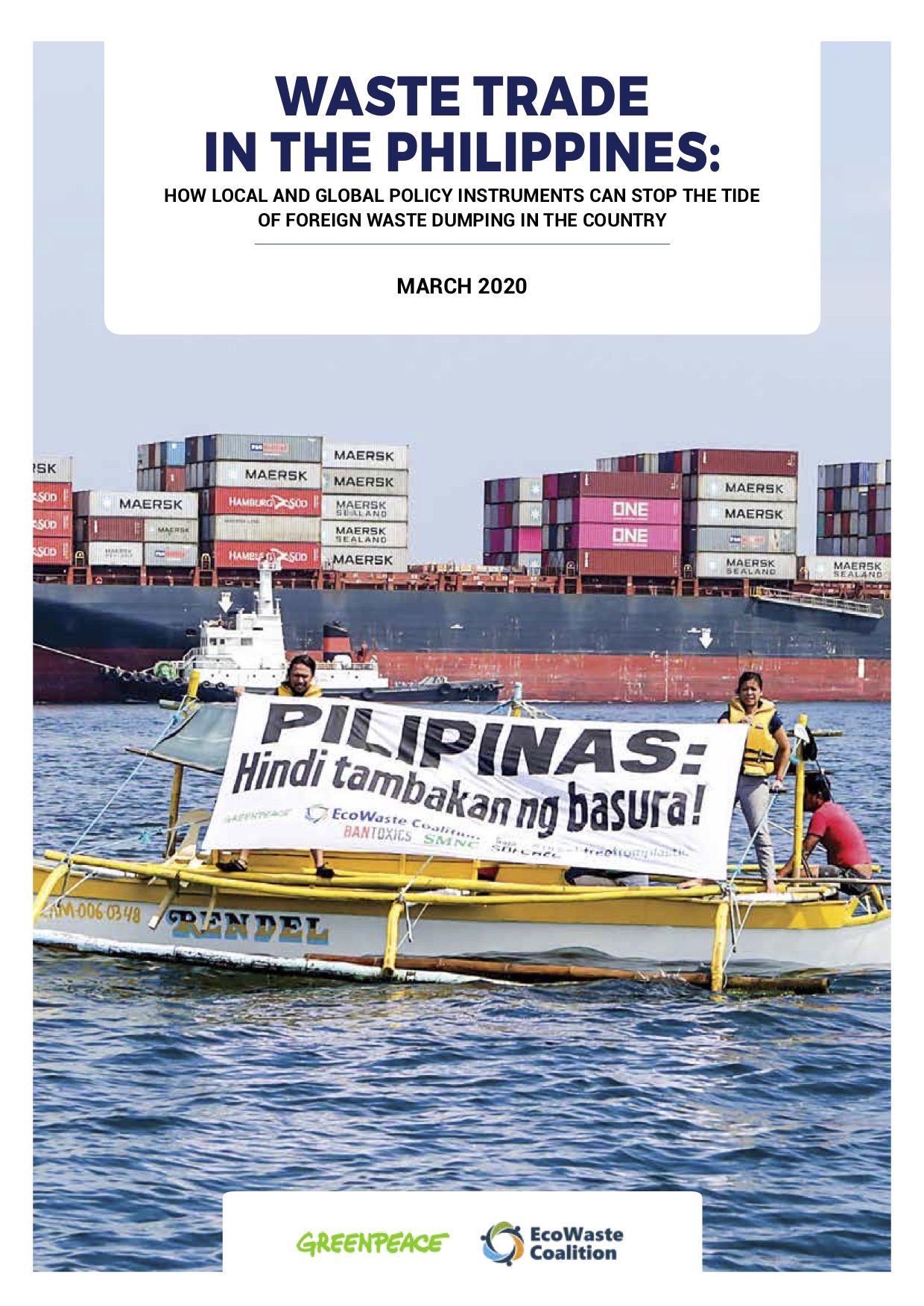
Waste trade and the Philippines: How local and global policy instruments can stop the tide of foreign waste dumping in the country
A policy paper that looks at current waste and importation laws to identify gaps and loopholes that allow waste trade to happen.
-
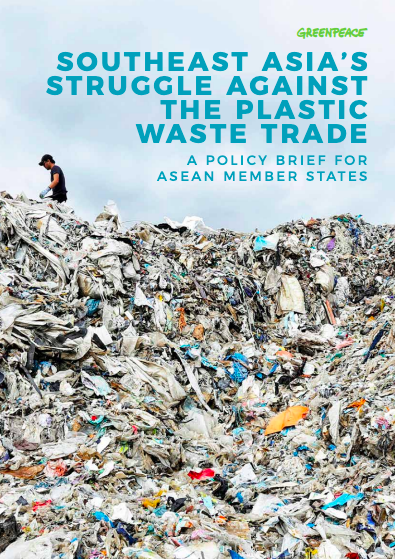
Policy Brief: Southeast Asia’s struggle against the plastic waste trade
Executive Summary As leaders from the 10 countries that make up the Association of Southeast Asian Nations (ASEAN) prepare to meet in Bangkok for the 34th ASEAN Summit this June,…
Sign up for Our Newsletter
Join our community and stay updated on our campaigns, actions, and victories. Sign up for our newsletter and be part of the movement for a plastic-free future.

